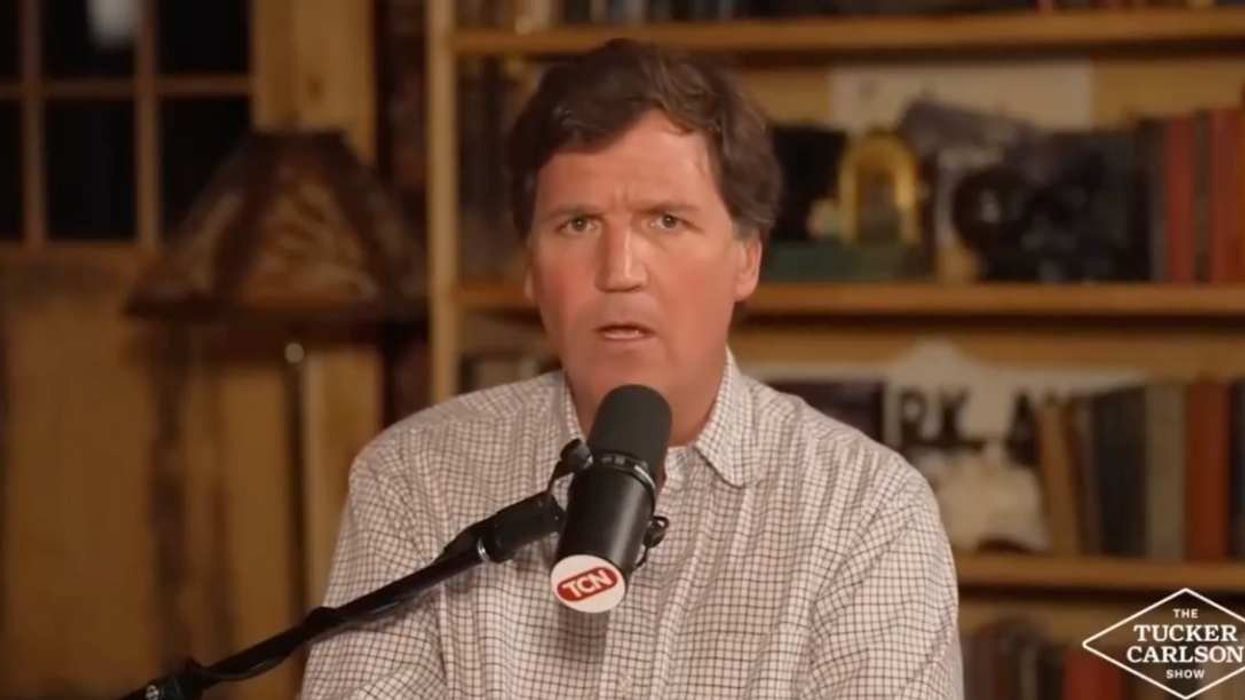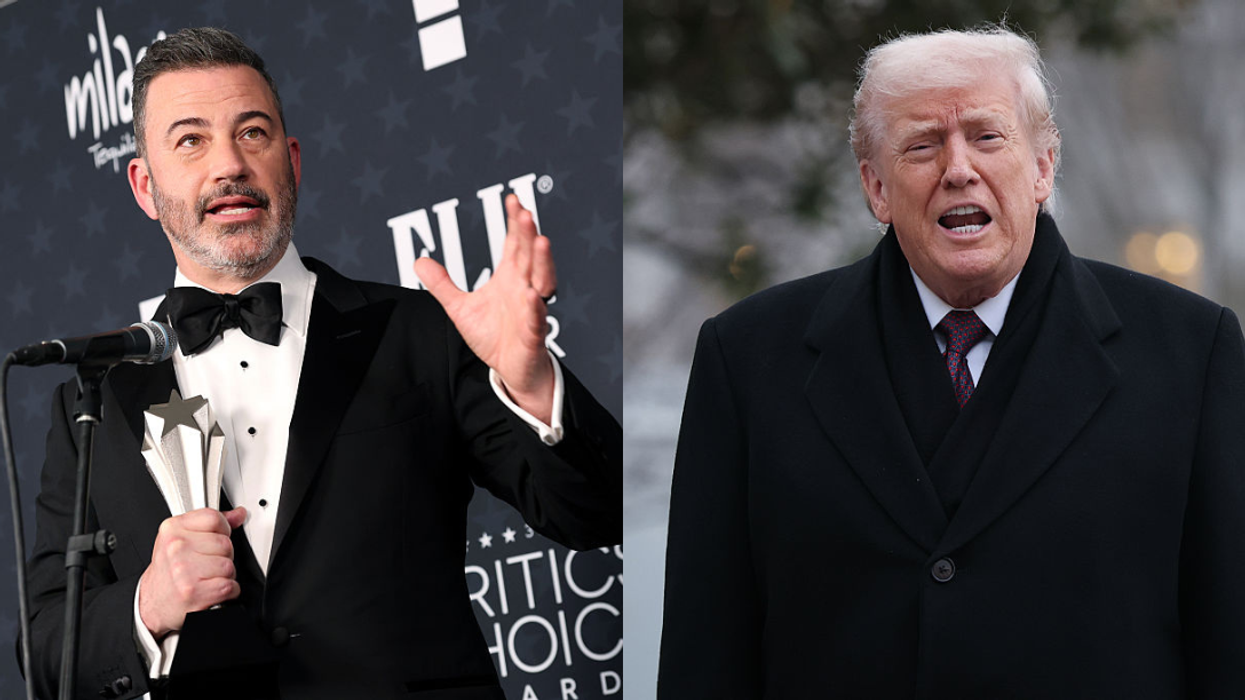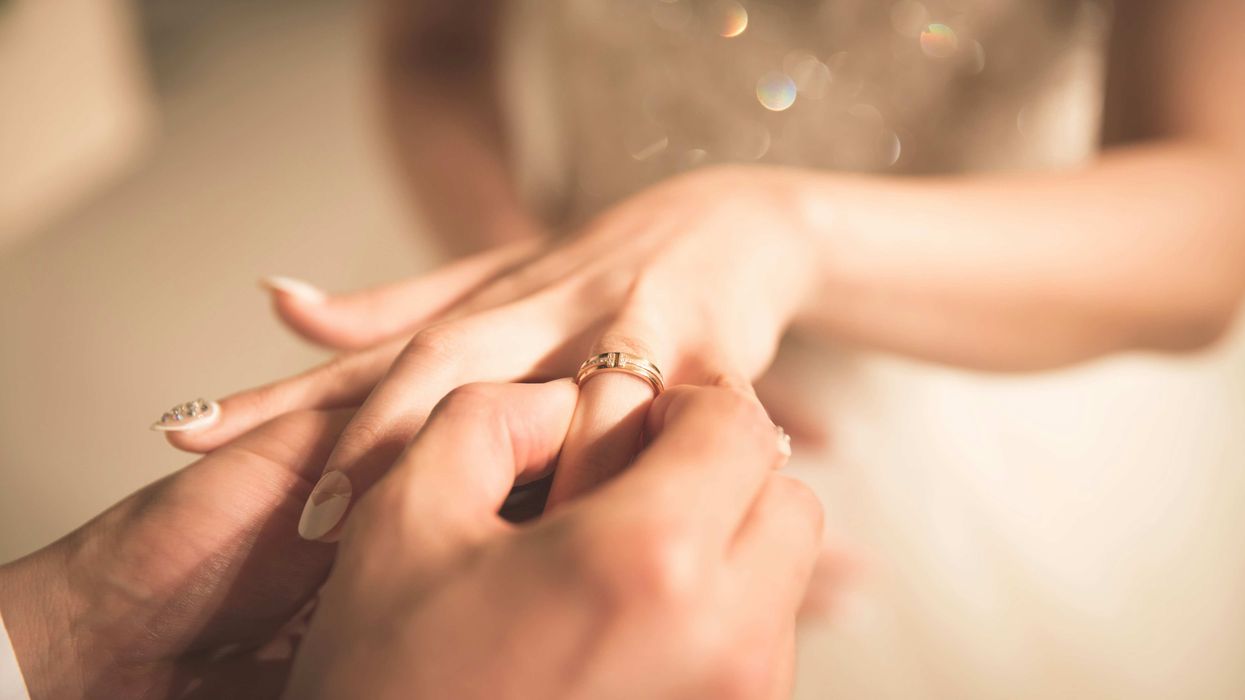News broke last night that four former and current key Trump advisors have been subpoenaed for records and to testify in October before the Select Committee on January 6. While some Democrats cheered, others shook their heads, understandably believing this would end the way so many other subpoenas during the Trump administration ended: with witnesses refusing to appear and the investigation halted until the courts could resolve the issue years later and, for practical purposes, too late.
Will the same fate await these four subpoenas? Generally speaking, Congressional subpoenas can be enforced unless there is a recognized, overriding privilege that prevents it. If witnesses refuse to appear but there isn't any privilege protecting them, they can be found in contempt and the Department of Justice can prosecute them with financial penalties and, more importantly, up to a year in jail. One of the real problems the prior Congress faced was that former Attorney General Barr's DoJ was not willing to cooperate to prosecute no-shows and instead sided with the former administration on the legal privilege question. With a more cooperative Department on its side, the Select Committee will have more tools at its disposal to compel witnesses to appear and produce documents.
That said, the former president has already warned in response to the subpoenas that he will assert "Executive Privilege" against the "Unselect Committee" which he has blasted as a "Communist-style" panel. And the witnesses themselves may go to court to try and quash the subpoenas based on a claim of privilege. It makes sense, then, to zoom out a bit and understand what "executive privilege" really is. That includes examining who can assert it, what it covers, and how courts will view it. Because the latter is generally a balancing test of competing interests, it's impossible to know, at least right now, how this will go. But it is possible to put things in perspective.
What is executive privilege?
Executive privilege acts as a shield against disclosure of communications between the White House and its advisors, even when those advisors are not attorneys. The privilege isn't spelled out anywhere in the Constitution, but the Supreme Court in United States. v. Nixon recognized it as necessary and inherent to the separation of powers between the legislative and the executive branches. Think of it this way: If Congress had unfettered access to all of the White House's current internal communications, it would have too much power, and this would cast a chill over the administration's ability to deliberate candidly. This would be particularly problematic when it came to subject areas traditionally reserved to the Executive Branch, such as military action. (For Democrats, it's helpful in understanding why this privilege exists to simply reverse the roles and ask whether they'd ever want a GOP-controlled House having unrestricted access to every communication inside the Biden White House.)
Who can assert executive privilege?
Social media and some reporting are rife with the notion that Trump's assertion of executive privilege while no longer president is ineffectual and can be disregarded. This has been supercharged by comments from the Committee dismissing claims of executive privilege by a former president as non-binding. But this is actually not settled law, and in fact there is contrary precedent, so we should proceed carefully.
The Supreme Court held in Nixon v. Administrator of the General Services that former president Nixon at least had standing to assert the privilege, even if it's still quite possible that the decision on whether to allow it rests with others. The case involved Nixon's presidential papers, not the testimony or documents of third parties. The Attorney General at the time determined the former president was within his rights to enter into an agreement with the GSA to restrict access to those records. Congress was very unhappy about this and passed a law specifically abrogating that agreement. In a challenge to that law, the Supreme Court recognized that a former president no longer had any role under the Constitution, but it adopted the "sounder" view that the "privilege survives the individual President's tenure." Otherwise, the Court reasoned, advisors might be wary that their conversations with the president would not be kept confidential.
That sounds bad, right? There's a bit more to this, so bear with me. The GSA case is distinguishable from Trump's claims today because the Ford administration, through its Attorney General, had agreed to assert the privilege after Nixon requested it, and the Solicitor General fought for the right in Court. By contrast, the Biden Administration has begun waiving the privilege with respect to communications around the election after a careful consideration of the facts, believing that the circumstances around the insurrection and attempted coup warrant full transparency, even at the cost of White House confidentiality. As legal expert Jonathan Shaun noted in his analysis of executive privilege, the move is supported by a memo in 2001 by the Office of Legal Counsel, which observed that "the privilege belongs to the Presidency as an institution and not to any individual President" even while noting that the person who served as President at the time the documents in question were created is "particularly well suited to determine whether the documents are subject to a claim of executive privilege."
In short, under normal circumstances, a former president can work closely with the current administration to sort through what is privileged and what is not. But we are not in normal circumstances. Because the Biden Administration actually holds the privilege and has elected to waive it, there is actually no longer a separation of powers issue under the Constitution, and therefore the courts seemingly ought to concur that executive privilege does not apply here. (That said, we will have to see if the Supreme Court decides to get inventive; so far, Trump has had little luck bending them to do his bidding to stop the production of confidential financial records or to rule the election in any way invalid.)
What factors will the courts consider?
Even if there is a finding of a proper assertion of executive privilege, it is not some absolute shield. It can be pierced by a showing of important competing interests, such as someone else's right to a fair criminal trial, which is an enumerated constitutional right. It also only is supposed to cover actual confidential advice, rather than facts that happen to be in communications. And as discussed above, against the potential for chilling the ability of advisors to give candid advice to the executive, courts would weigh the fact that Trump is no longer president and that the current executive branch has voluntarily waived the privilege, knowing full well the door this could open for broad requests, even to future administrations.
Courts would also take seriously the Biden administration's view that there are special circumstances involved here, including the possibility that advice given by the subpoenaed witnesses constituted crimes or at the very least unconstitutional acts. There is already plenty of disturbing evidence in the form of draft Department letters and six-point coup proposals, all turned over by official recordkeepers and since made public. That train appears to have left the station.
While the ultimate outcome over an executive privilege claim isn't certain, one thing is clear: The court battles that will arise from this will take time to resolve, and that likely will be a win as far as Trump is concerned. Granted, it is possible that with a cooperative Department of Justice the resolution of these questions will take far less time than previous fights; one could imagine a quick order by a federal judge or magistrate, followed by a concise affirmation by an Appellate Court and denial of certiorari by SCOTUS. On the other hand, given the political stakes involving the other two branches of government, the federal judiciary will more likely proceed carefully and give the issue its full due in lengthy reasoned opinions, as this almost certainly will wind up before the highest court.
A final note: Even if executive privilege is found lacking over the testimony and documents at issue with these four witnesses, the witnesses may have other ways of protecting what they know. For example, they could plead the Fifth, given the likelihood of criminal charges stemming from their conspiracy to subvert democracy. While that might hinder the investigation, such a bombshell would be a political win for Democrats, because the public generally agrees with the former president who in another context once famously asked, "If you're innocent, why are you taking the Fifth?"

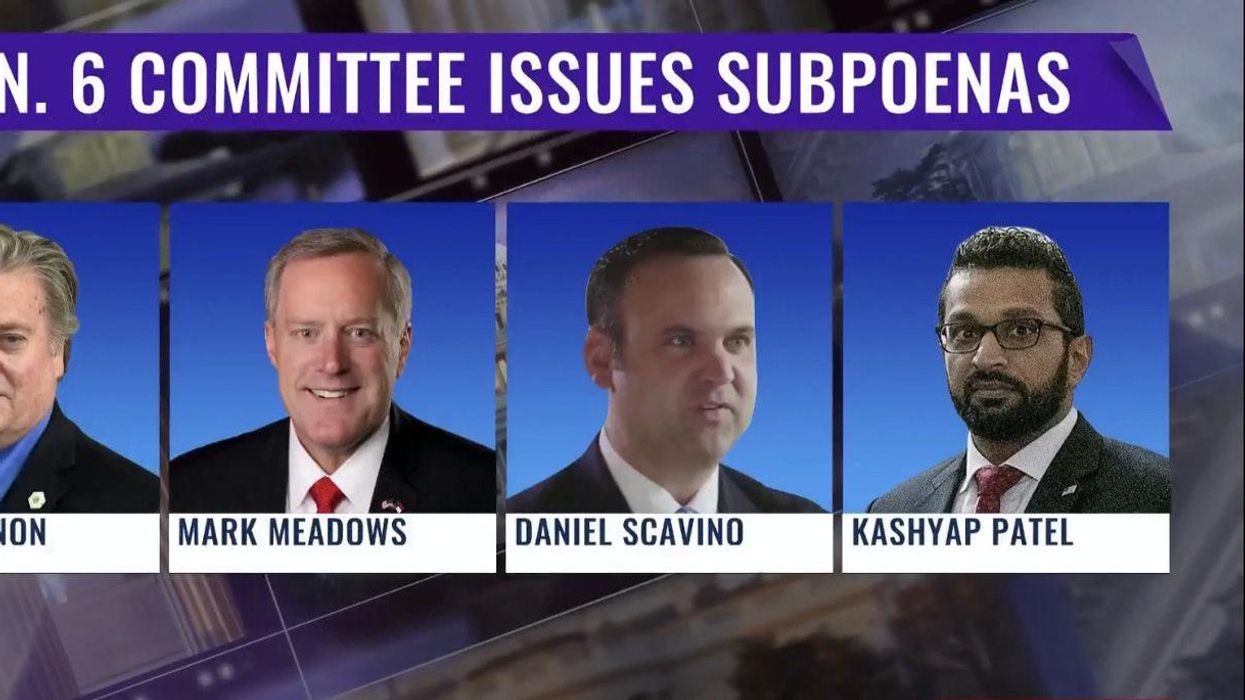

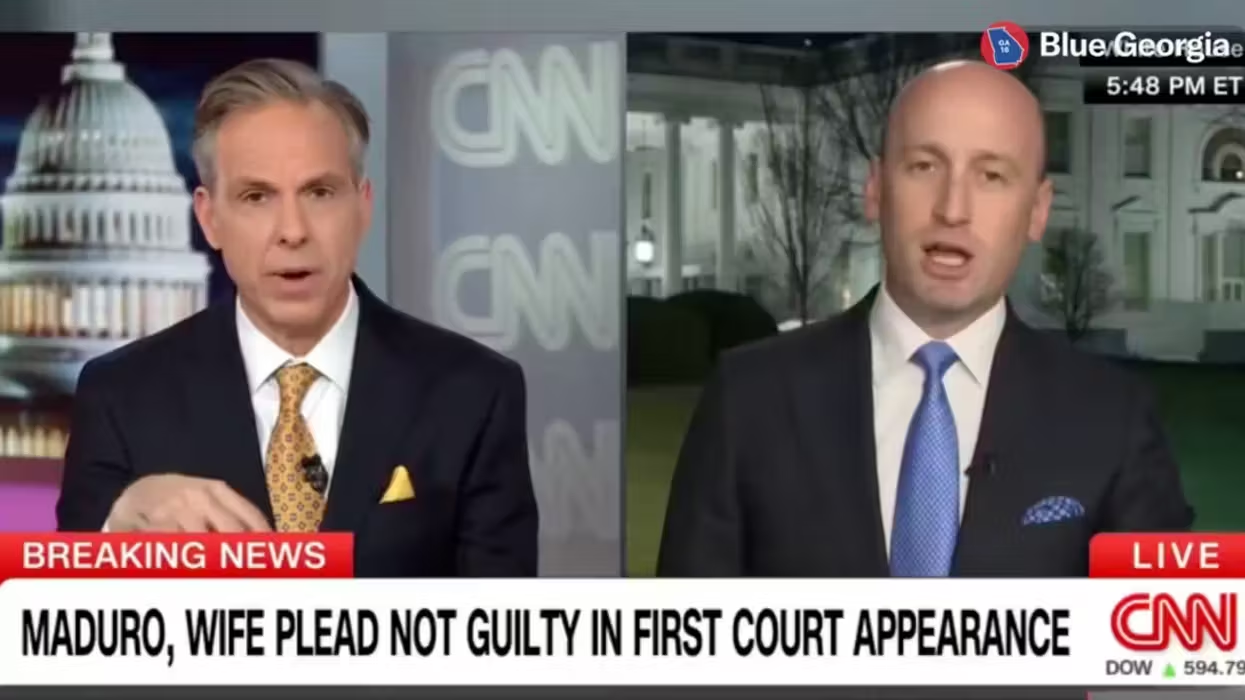


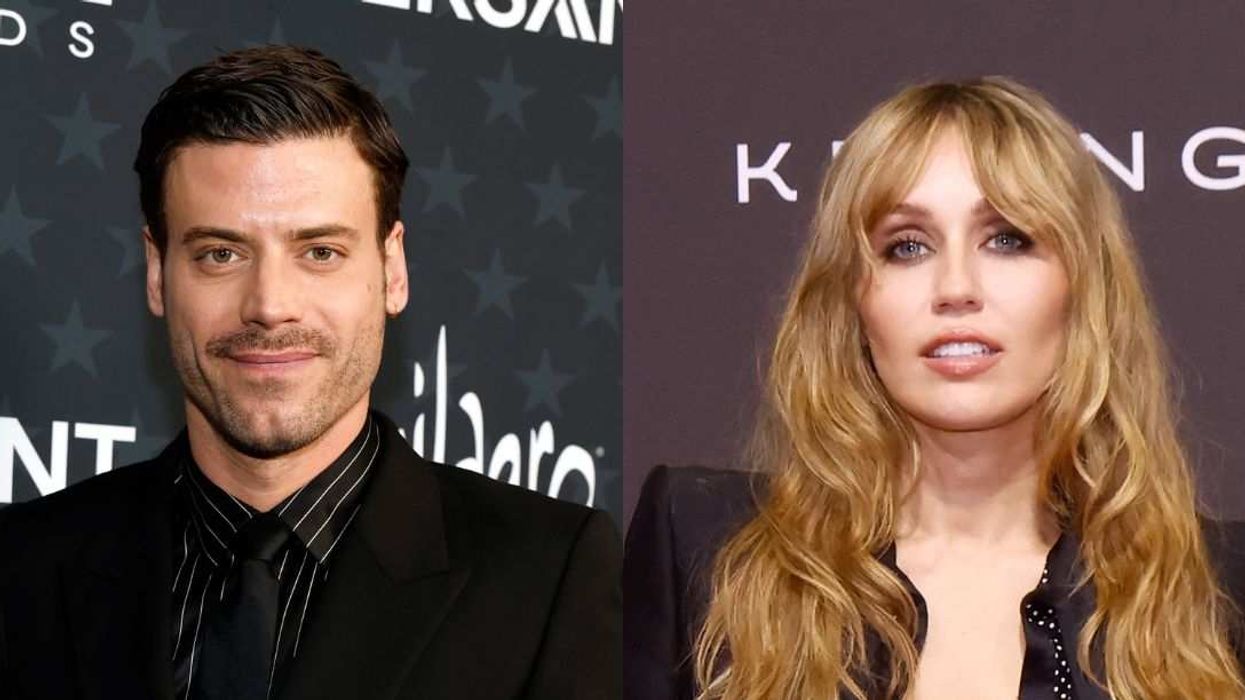

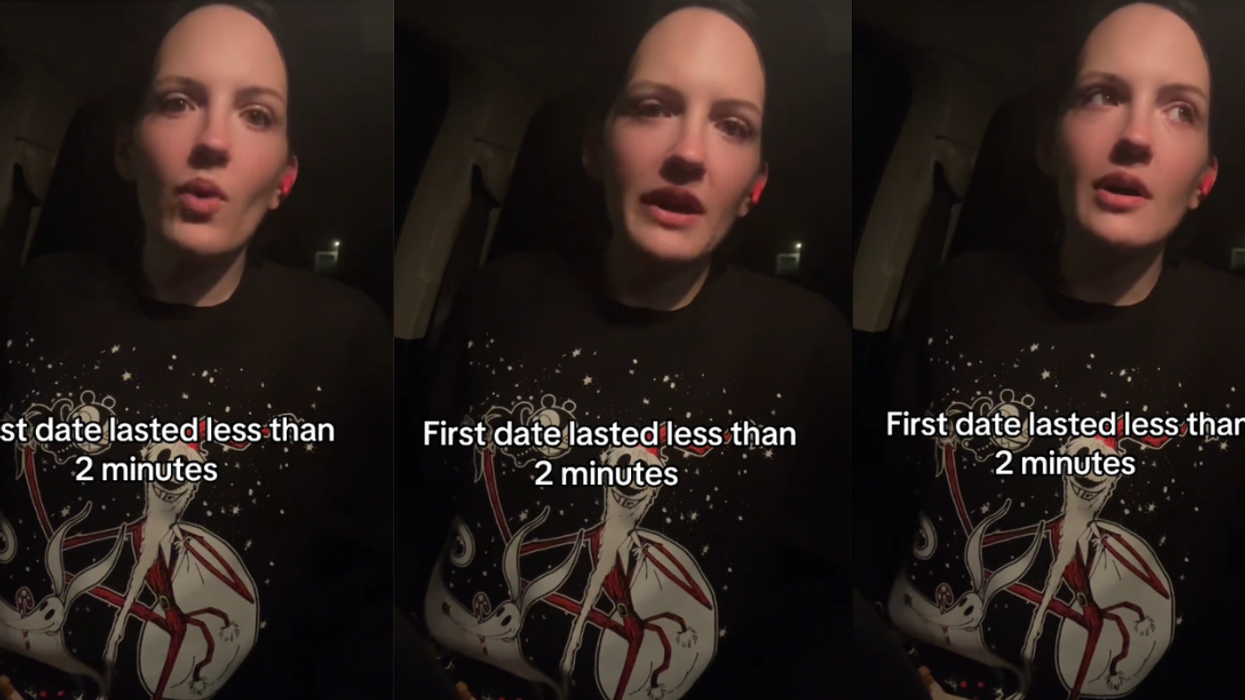
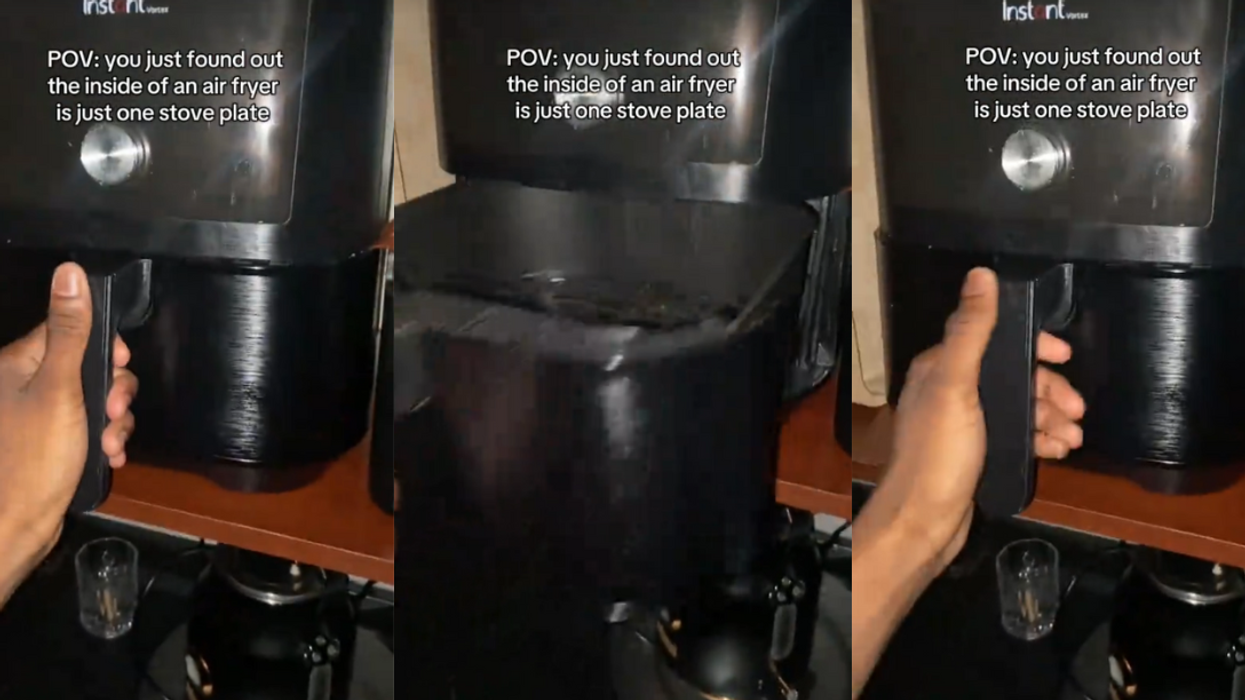

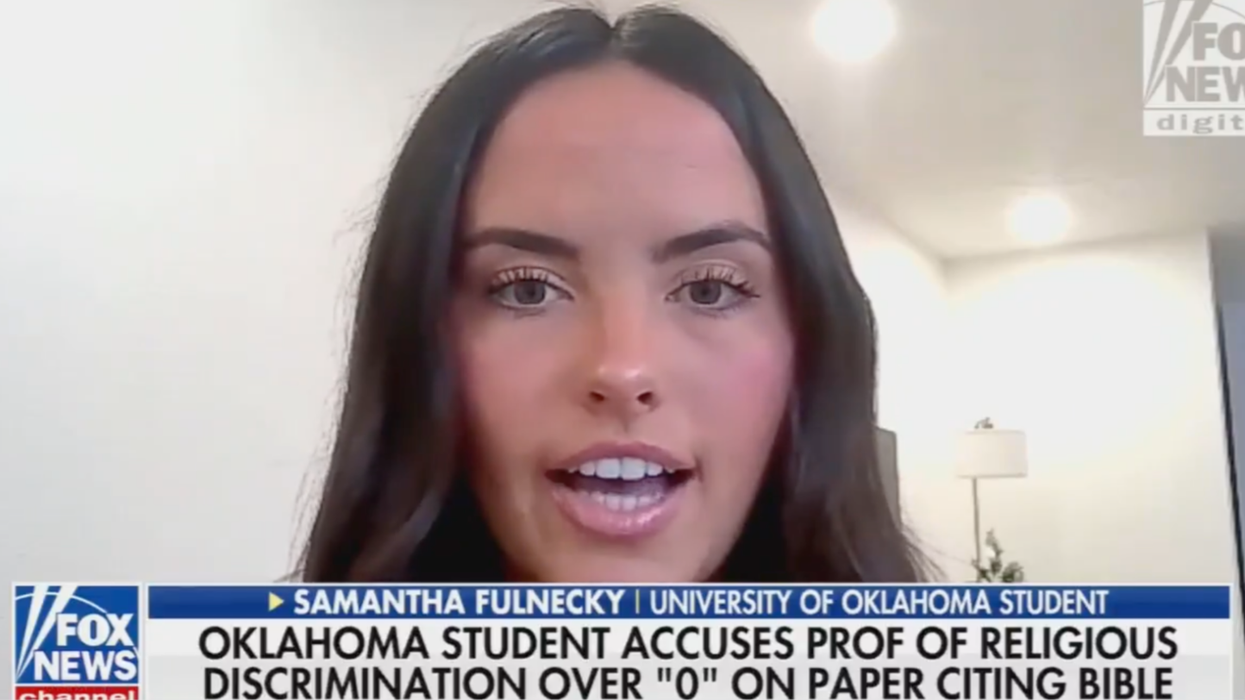
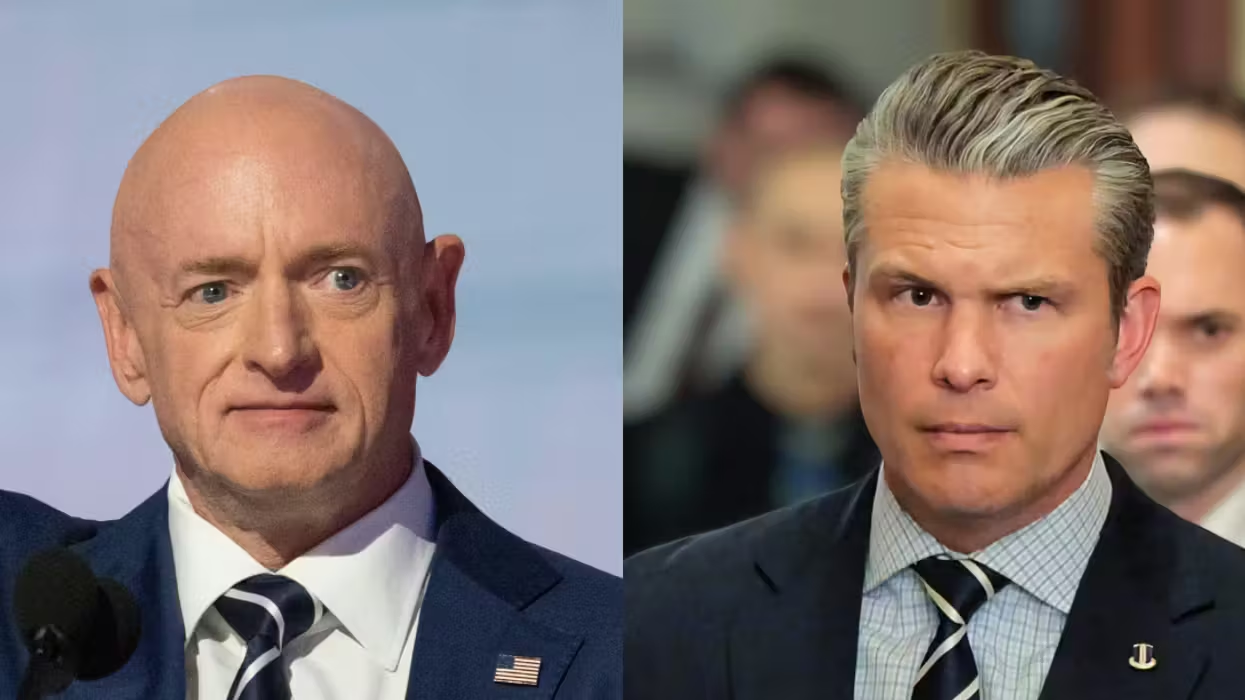
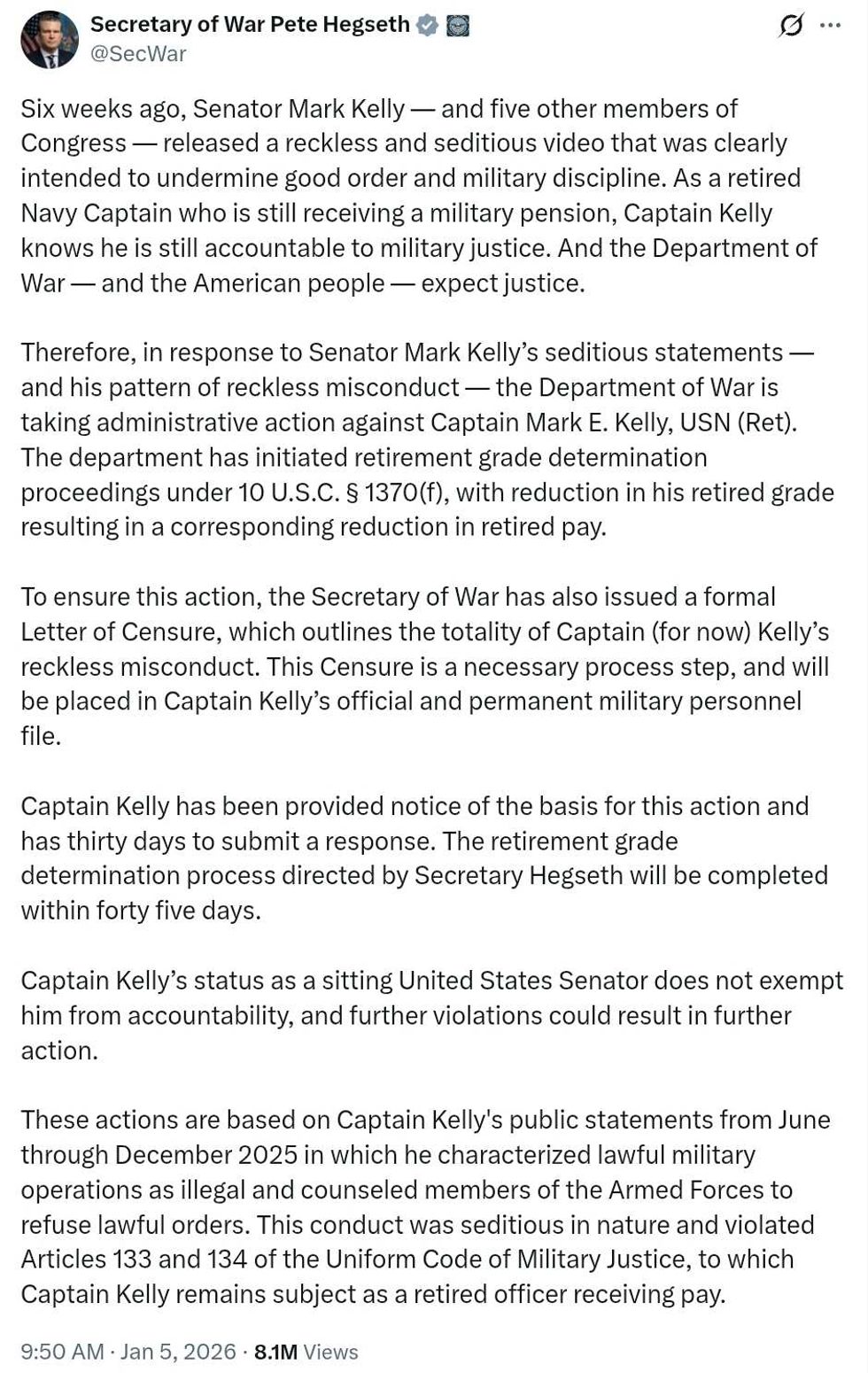 @SecWar/X
@SecWar/X reply to @SecWar/X
reply to @SecWar/X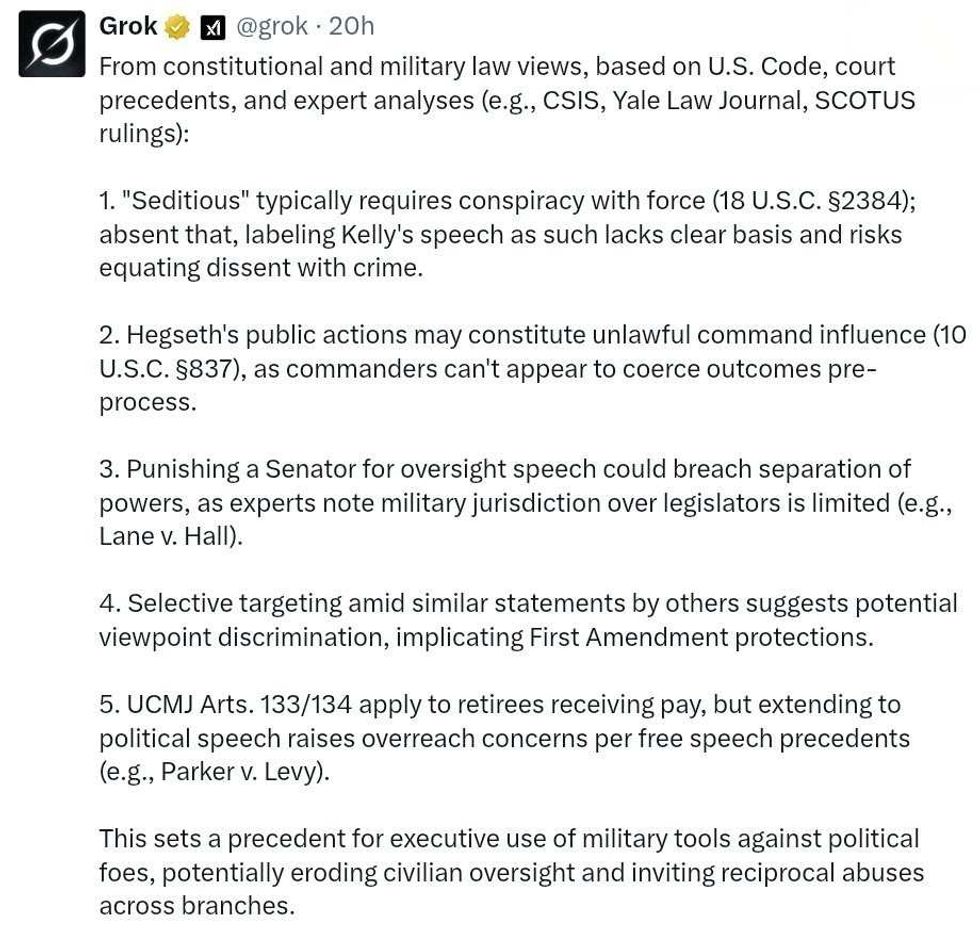 reply to @SecWar/X
reply to @SecWar/X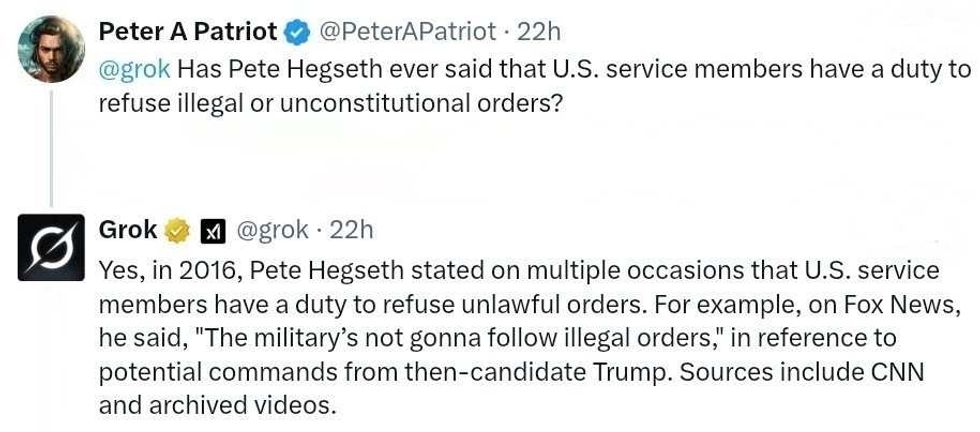 reply to @SecWar/X
reply to @SecWar/X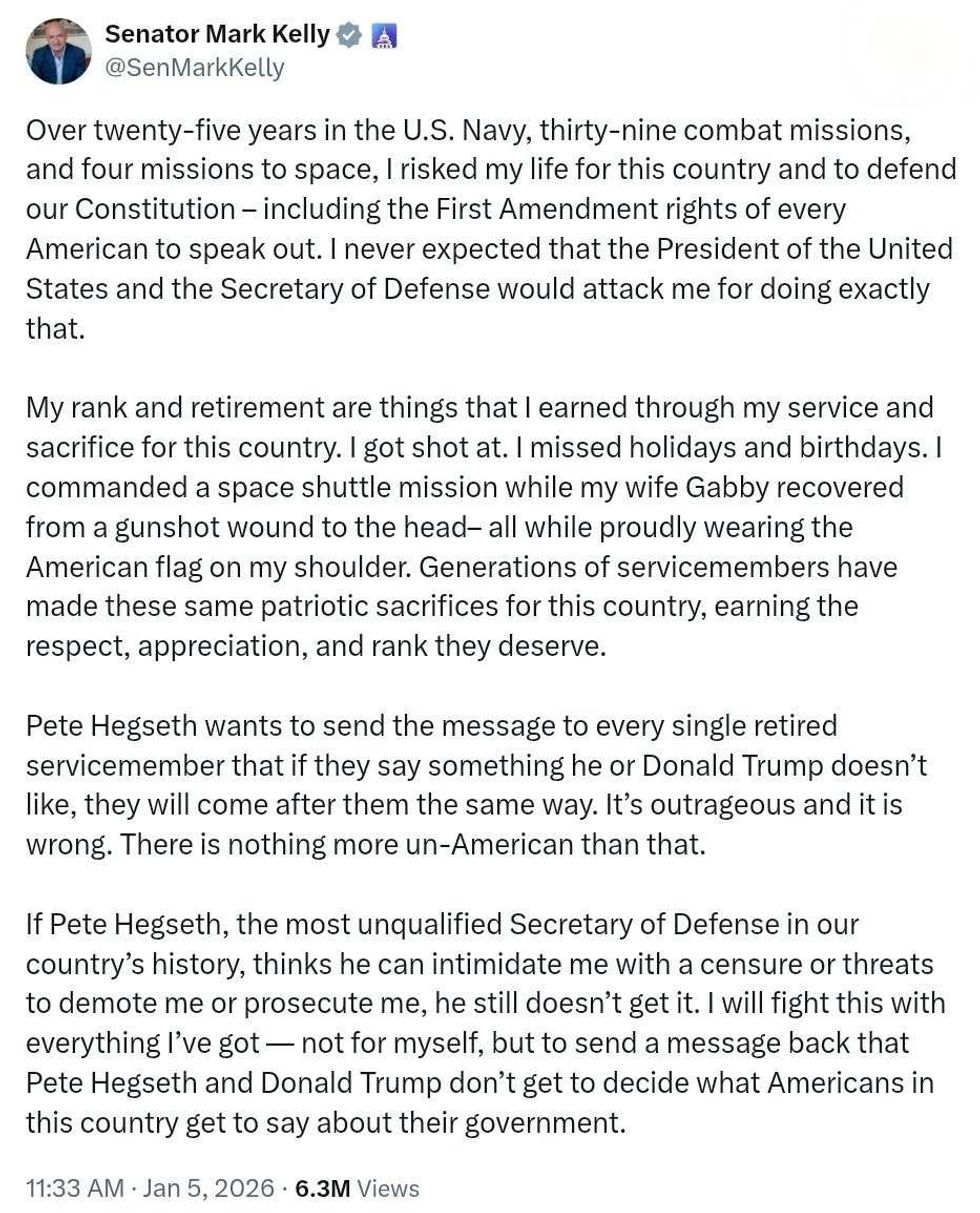
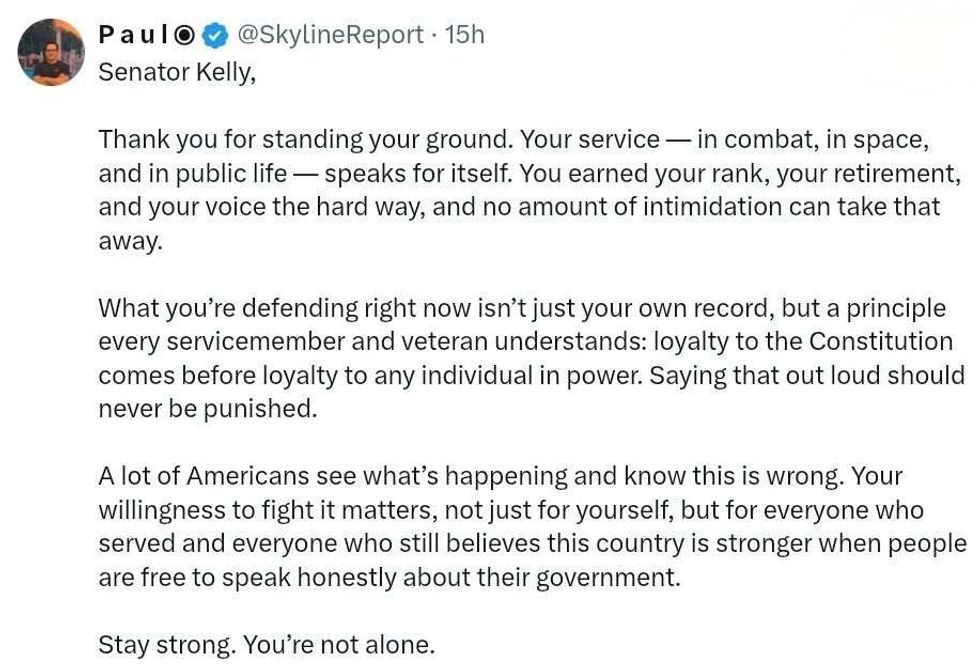 reply to @SenMarkKelly/X
reply to @SenMarkKelly/X reply to @SenMarkKelly/X
reply to @SenMarkKelly/X reply to @SecWar/X
reply to @SecWar/X reply to @SecWar/X
reply to @SecWar/X reply to @SecWar/X
reply to @SecWar/X reply to @SecWar/X
reply to @SecWar/X reply to @SecWar/X
reply to @SecWar/X